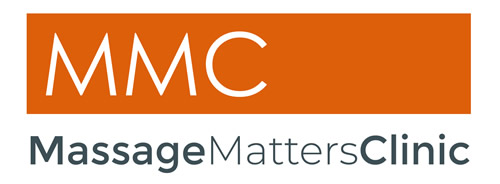A Case Study: The Desk Worker
Desk work can lead to muscle strain and weakness in key areas, impacting posture and mobility; sports massage offers relief and support.
Published: August 6th, 2023 | By: Tom Newby | Read Time: 3 mins

You may have noticed that I’m quite eager to discuss the frustrations of prolonged, seated, desk-bound work with anyone willing to listen. It’s a topic that affects many of us (including myself) who spend extensive time sitting, often due to work demands. Working long hours undoubtedly takes a toll on our bodies.
It’s important to recognise that our bodies adapt remarkably well to regular, repetitive postures or behaviours. This adaptability is beneficial, enabling us to refine movements – think of Roger Federer’s flawless forehand. Each one of our muscles and soft tissues responds to the physical behaviours we repeat.
However, excessive repetition of the same posture or movement can lead to unwelcome consequences. The natural adaptive process can cause instability, weakness, tightness, or a combination of these issues.
Today, we want to share a compelling case study that sheds light on the effects of desk work on musculoskeletal health. Meet ‘Sarah’*, a dedicated office worker with a typical 9-to-5 schedule. Like many of us, Sarah spends a significant portion of her day sitting at her desk, working on her computer, and attending virtual meetings.
Over time, Sarah began to experience various discomforts, from persistent neck and shoulder tension to occasional lower back pain. Intrigued by her situation, we decided to delve deeper into the impact of her desk job on her body.
Muscle Adaptation due to Desk Work:
- Trapezius (Upper back and neck): The trapezius muscles in Sarah’s upper back and neck became strained and tense from holding her head and shoulders forward while working on the computer. This resulted in neck and shoulder pain and limited range of motion.
- Levator Scapulae (Shoulders and neck): Sarah’s levator scapulae muscles, responsible for lifting her shoulders, experienced tension and tightness due to desk-related activities. This contributed to discomfort in her shoulders and restricted shoulder movement.
- Erector Spinae (back): Supporting her back and maintaining an upright posture, Sarah’s erector spinae muscles weakened and tightened with prolonged sitting. As a consequence, she experienced lower back pain and reduced spinal stability.
- Pectoralis Muscles (Chest and shoulders): Due to hunching over her desk, Sarah’s pectoralis muscles in her chest became tight and shortened. This led to rounded shoulders, poor posture, and limited mobility in her chest and shoulders.
- Hip Flexors (Front of hips and thighs): Sarah’s hip flexor muscles at the front of her hips became tight and less flexible from sitting for extended periods. This caused discomfort in her hips and lower back and altered her gait patterns.
- Hamstrings (Back of thighs): Situated at the back of her thighs, Sarah’s hamstrings tightened and lost flexibility due to inactivity while sitting. As a result, she experienced reduced hamstring flexibility, increased risk of hamstring strains, and potential lower back pain.
- Gluteus Muscles (Hips and buttocks): The gluteal muscles, including the gluteus maximus and medius, became weak and underutilised from excessive sitting. This compromised her hip stability, lower back support, and walking mechanics.
- Abdominal Muscles (Core and lower back): With prolonged sitting, Sarah’s abdominal muscles weakened as they were not fully engaged. This led to weakened core muscles, poor posture, and potential lower back discomfort.
Sarah’s case study is not unique; many of us experience similar challenges due to the sedentary nature of desk jobs. However, we believe that knowledge is power, and we are here to support you in maintaining your musculoskeletal health.
At MMC, our experienced massage therapists and professionals can provide personalised strategies to relieve muscle tension, improve flexibility, and support better posture. By incorporating massage therapy and related techniques into your routine, you can find balance for better well-being.
If you’re curious to learn more about how massage therapy can enhance your overall health and address the effects of desk work, we encourage you to book a session with one of us.
*Sarah is a completely made-up name and case study, based upon experience of treating lots of people!
Opening Hours
Mon: 1.00pm - 9.30pm
Tue: 7.00am - 6.00pm
Wed: 11.00am - 4.00pm
Thurs: 7.00am - 6.00pm
Fri: 8.30am - 9.30pm
Sat: 7.00am - 9.30pm
Sun: Closed
All appointments booked in advance, give us a call if you need to.
Contact
11 Friday Court (1st Floor)
Thame, Oxfordshire
OX9 3GA
E: hello@massagematters.clinic
L: 01844 212022
M: 07771 896398
We pick up the phone 8am-8pm Mon-Sun
Client Feedback
"A very professional set-up, lovely treatment rooms and plenty of parking."

